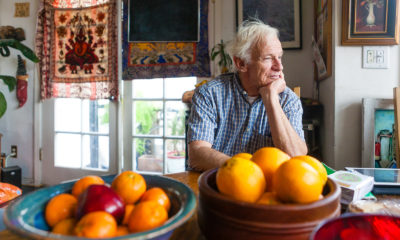
In History
Oregon Begins Recreational Cannabis Sales
It has been three months since prohibition came to a screeching halt in Oregon and now the state has officially launched the first phase of its recreational market.
Today, hundreds of medical dispensaries will begin selling recreational marijuana. So far, 200 of the state’s 345 licensed dispensaries have reportedly informed the state of their intentions to begin dabbling in this sector. Yet, some are still pending approval.
When Oregon legalized a full-scale cannabis market in 2014 with the passing of Measure 91, state officials predicted that a taxed and regulated market would not be possible until sometime in 2016. However, lawmakers whipped up a bill to establish a temporary trade by allowing the medical sector to get involved with retail sales. That bill was signed into law in July by Governor Kate Brown, which positioned the state to open a partial retail market on October 1.
Although the stipulations attached to the transitory recreational market are not perfect, they do allow cannabis users to get their hands on up to a quarter ounce of raw marijuana each day, long before the state puts a more permanent regulatory model in place. Unfortunately, however, no cannabis-infused edibles will be sold outside the medical sector until the state unleashes a comprehensive market next year.
Perhaps one of the greatest benefits of the temporary framework is that all recreational marijuana is being sold tax-free until the turn of the New Year. The law doesn’t demand the 25 percent tax be collected until January 4, 2016.
While it seems that adult use cannabis will be relatively easy to get, a number of cities and counties have refused to allow early recreational sales. Gresham, La Grande, Reedsport, Scappoose, Sherwood and Tangent are all cities that are not permitting recreational cannabis to be sold, while the counties of Douglas and Harney have also opted out.
But will there be enough weed for everyone?
Some medical marijuana advocates are worried that an outpouring of recreational consumers could cause trouble for patients that rely on dispensaries for a consistent supply of medicine.
“We’re really nervous. The dispensaries might sell all the marijuana to recreational people and the patients will be left without their medicine,” Anthony Taylor, president of the nonprofit patient advocacy group Compassionate Oregon, told the Associated Press. “Prices for medical marijuana might also increase, if demand outgrows supply.”
Some dispensaries have reportedly agreed to put the medical marijuana clientele first, while others simply plan to sell their inventory to whomever is standing before them with a fistful of cash.
Are you joining in this historic moment and buying cannabis today? Tell us what you bought.























